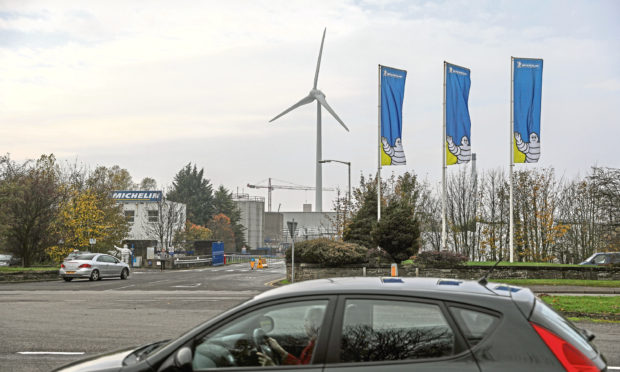It is sad news and a shock to the workers, but the closure of the Michelin plant in Dundee is just the beginning of a revolution.
The car is changing, possibly dying altogether, and our relationship with automobiles will never be the same.
Couple this with the opening up of cheap labour markets in Asia and political turmoil and you have a perfect storm for manufacturing jobs.
Michelin got hit by a fashion shift.
Once the best you hoped from a car was that it worked.
A century of engineering cracked that issue in the 1990s when most mass-produced cars would start every time and run for ever.
Cars had always been sold on the promise of sexiness or speed, but were now marketed according to cosmetic differences and the quality of the sound system.
This urge for variation is in part what did for the jobs at Baldovie.
Michelin also blames “cheap Asian imports flooding into Europe”.
You can demonise globalisation if you like, but it’s because of cheap Asian imports that we can also afford flat-screen TVs, fancy mobile phones and new washing machines.
It is why most of us buy cars made in Eastern Europe, Asia or South America.
What the global markets give, they also take away.
The making of cars and parts is 8% of the UK manufacturing, according to a recent House of Commons report.
It’s an important part of the economy, but ever decreasing.
Indian-owned Land Rover Jaguar has done well in recent years selling luxury four-wheel drive cars like Range Rovers.
That growth has slowed. Its sales in China have slumped and the UK plant at Solihull has temporarily stopped production.
The company is threatening to close all its UK manufacturing and switch to plants in Eastern Europe.
Key factor
Cost of labour is one factor, but so too Brexit.
Every car manufacturer with plants in the UK has warned that leaving the EU could end production.
This would mean the bad news for Michelin workers in Dundee being felt across the country, and by tens of thousands.
Then factor in changing power systems.
Where once diesel was king – it burnt less fuel per mile than petrol, and those technical advances in the 1990s meant the engines no longer rumbled like a tractor – now petrol is the most popular fuel, and soon it will be electricity.
The death of the diesel isn’t helping Land Rover Jaguar, which is developing an electric model.
If you have over £70,000 you can buy one, but how many of us have that kind of money?
The UK passed legislation on electric vehicles this summer and has set a date of 2040 for when no more diesel cars will be sold.
The Scottish Government has spoken of turning the A9 into some kind of electric-powered highway.
If the future is green, then that’s alarming news for owners of old cars.
In the UK we borrow around £60 billion to buy cars – 90% of all sales are done through finance deals.
All of that is at risk of becoming worthless when electric tips from being a novel purchase to the only offer.
Meanwhile, jobs across UK manufacturing are threatened by the switch. The hope is most combustion engine makers will evolve into electric engine producers, but some are bound to be lost.
As to when the market switches is hard to guess.
ScottishPower and Arnold Clark this week launched a deal on buying an electric car.
Yet at the same time, the UK Government is withdrawing its subsidy for green cars.
I can see it’s time to sell my diesel-chugging Land Rover Defender.
A modern car would be kinder, greener, cheaper and, unlike the Defender, comfortable.
Yet I can’t charge a green car because I live in a tenement flat.
I could run a cable out of the window, but it would garrotte passing pedestrians and the neighbours might pinch it to power up their Christmas lights.
Second, if you plan to drive around the north-east, or further across Scotland, then it’s a non-starter – literally, your car will not start because it will have run out of juice and then take hours to recharge.
Maybe then it’s time to say goodbye to car ownership altogether.
That is the hope of tech start-ups, who want us to switch to the sharing economy.
The convenience of being able to do everything digitally, from checking the background of the driver to unlocking the car and starting it, makes car clubs and sharing apps an easy option.
However, that is a major shift in habit and culture. To own a car bestows freedom – the look of the car matters.
If we all come to share, that will have a further blow on manufacturing, as far fewer cars will be needed.
The closure of the Michelin plant is sad, but there is more tragedy to come.
We know we live in revolution, it’s just not clear how best to prepare for the future.










